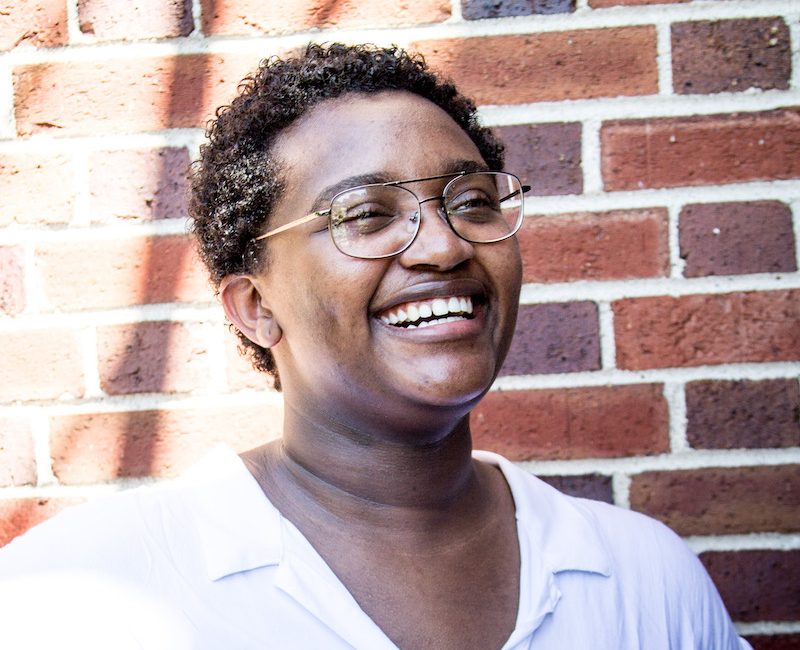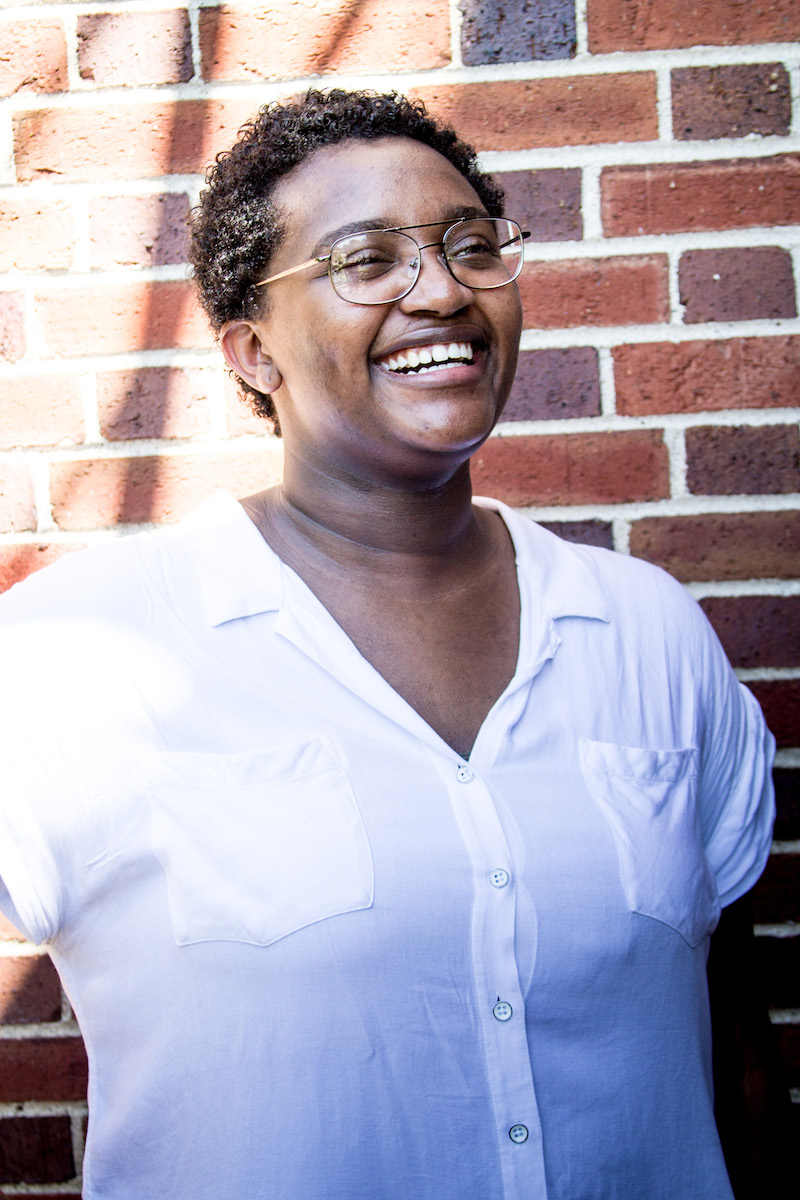Elcy Timothy finds her fit in the Department of Sociology
Author: ramiller

Author: ramiller

 Elcy Timothy (’20 sociology) came to Iowa State University as a biology major with the intention of becoming a marine biologist and getting her master’s degree somewhere on the coast.
Elcy Timothy (’20 sociology) came to Iowa State University as a biology major with the intention of becoming a marine biologist and getting her master’s degree somewhere on the coast.
While she found the subject matter interesting, she began to lose interest. Like many students, Timothy was unsure if she should switch from a major in which she had invested multiple years of study.
“I had to decide if I should push myself to continue this major and graduate with a biology degree, or do I switch and do something that helps me with library science,” explained Timothy.
She thought a switch may help her pursue an earlier passion.
“My first job was in the library at 16, so that was always in the back of my mind. I always loved the idea of being a librarian—I just love libraries. I love working with people and helping the community in that way,” said Timothy.
With that realization, she began to look for a path toward her new goal. She took to reviewing her degree audit and the course catalog after a friend mentioned she may enjoy a sociology major to see if it would be a good fit.
“I made a list of all the classes I wanted to take and had taken within sociology compared to psychology and noticed I had more credits in sociology,” said Timothy. “That’s how I know that I was obviously more interested in sociology and thought it was the right direction for me.”
Though she was confident in her decision, she still felt anxious for a short time.
“When I first switched, I was scared. In your first year, you do orientation classes and have learning communities for your major. You have all these different ways to connect to people and teachers in your major,” said Timothy. “But when I switched to sociology, I did not know anyone else who was a sociology major and had no connections to the teachers—so I felt really lost, like I was floating around.”
Determined to find her way as a sociology major, Timothy took the initiative to become involve while taking Sociology of Intimate Relationships with Susan Stewart, professor of sociology.
“I thought, ‘maybe I can try to do some work with her because I don’t know anyone.’ So, I talked to her and said I was new to the major and asked if there was anything she was doing that I could get involved with.”
All it took was asking to be involved, and Timothy was able to get her first research experience with Stewart, who had just started a project researching culture and laws surrounding stepfamilies in the United States and comparing them to Asian nations.
Stewart presented initial findings as the keynote speaker for “Old Bonds, New Ties: Understanding Family Transitions in Re-partnerships, Remarriages and Stepfamilies in Asia” in Singapore in November 2018, and Timothy intends to apply to present the research at upcoming undergraduate research presentations.
So far, Timothy has found the opportunity valuable.
“Getting to see a professor preparing their work for a conference and write their paper for a conference—just seeing that process and getting to work with her is really eye-opening. [Stewart] focuses on family sociology and seeing how that works is really interesting, especially when narrowing down the areas I want to work in.”
Not only does it help find areas of interest, but the research is helping Timothy prepare for her future education, as she intends to pursue graduate education in sociology and library science.
“I think that I am getting prepared for graduate school and what I’m going to have to do there with all the writing grad school requires. It even helps with the application process because I know that some schools want you to send in writing samples,” Timothy said.
No matter what the future holds for any student, though, Timothy recommends working with professors to get valuable experiences like those she has had.
“My advice to fellow students and students getting a sociology degree would be to pursue working with a professor doing independent study, or help them with their research, because that experience will definitely help you with your career learning,” Timothy said. “Maybe it will teach you that you don’t want to focus on a specific area, or maybe it’ll open your eyes to area you’ve never worked in before, and it will also prepare you for graduate school if that is something that you’re interested in.”